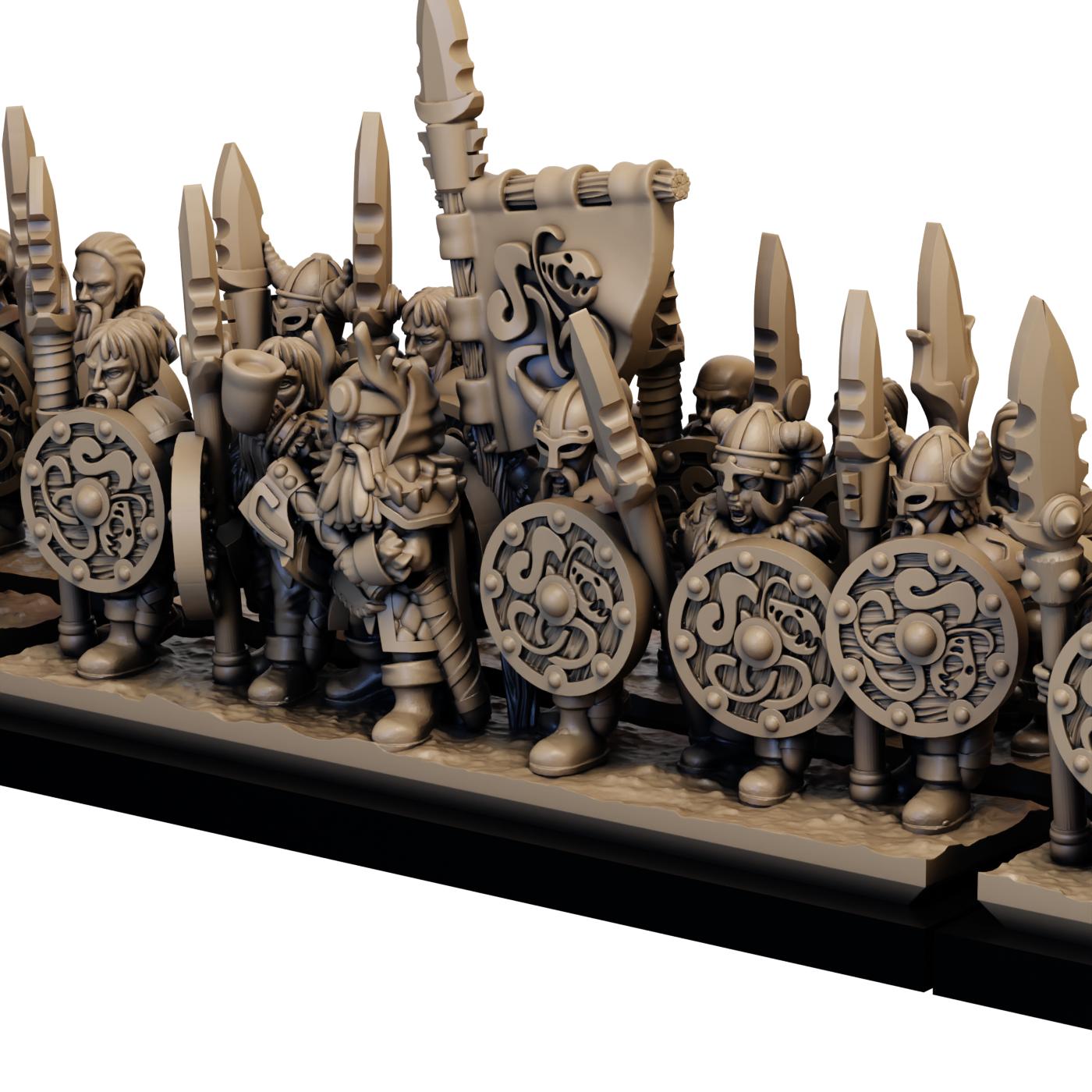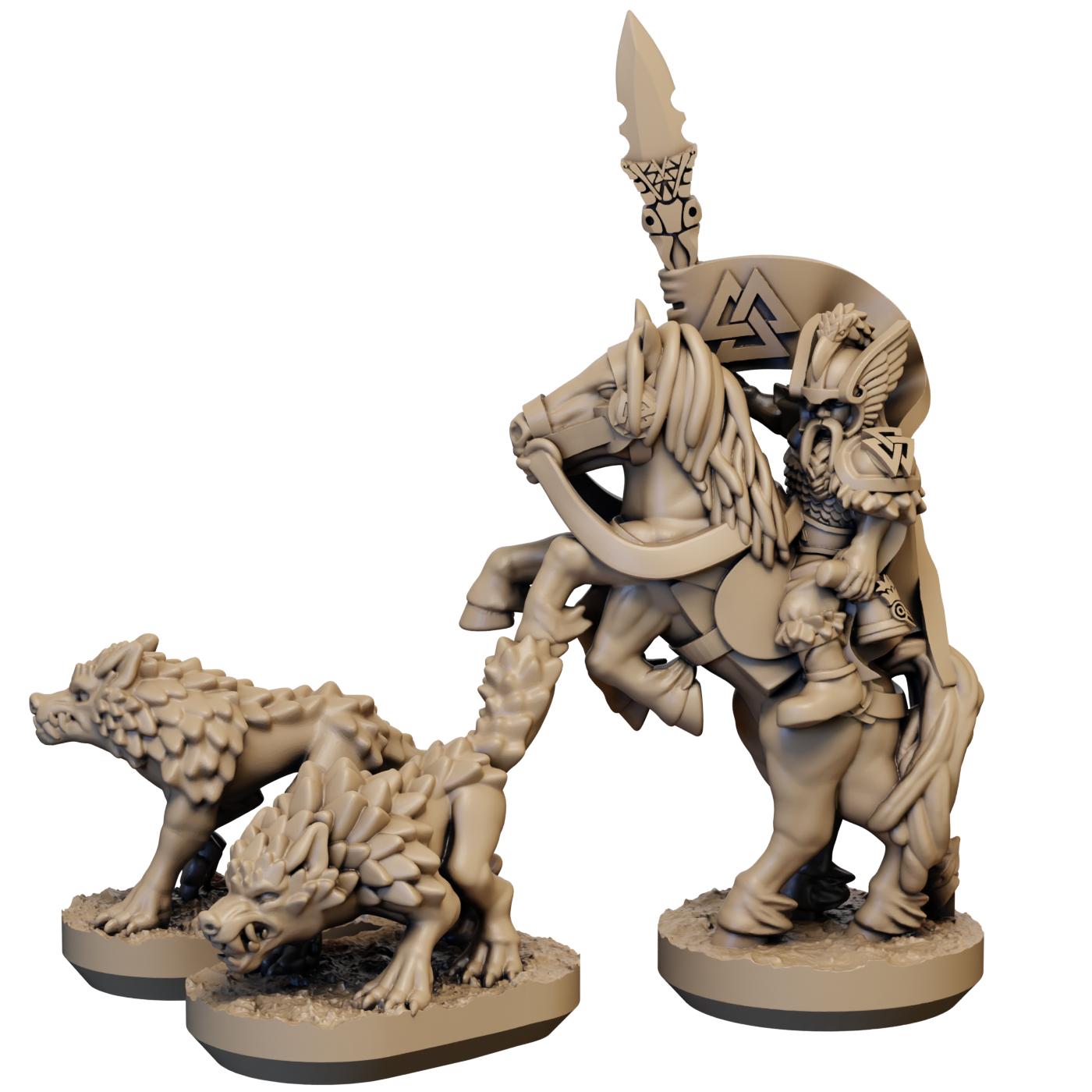
Odin, The All Father, the ruler of all the gods and the Lord of Battle. Odin is depicted riding Sleipnir, the eight legged stallion that Loki gave birth to, and accompanied by the wolves Geri and Freki. He is armed with Gunginir, the spear that never misses. Odin gave up one of his eyes in trade for wisdom. Odin offers power and strength, but you would be unwise to seek his aid, as those who do invariably meet a sticky end.
Hel is the god of the dead, she is queen of Helheim, the interminably dull after world for those who neither achieved glory nor notoriety. Hel, child of Loki, was brutally harmed when the other gods threw her into the underworld. The right side or her body has been stripped of flesh, and her back is bent and twisted.
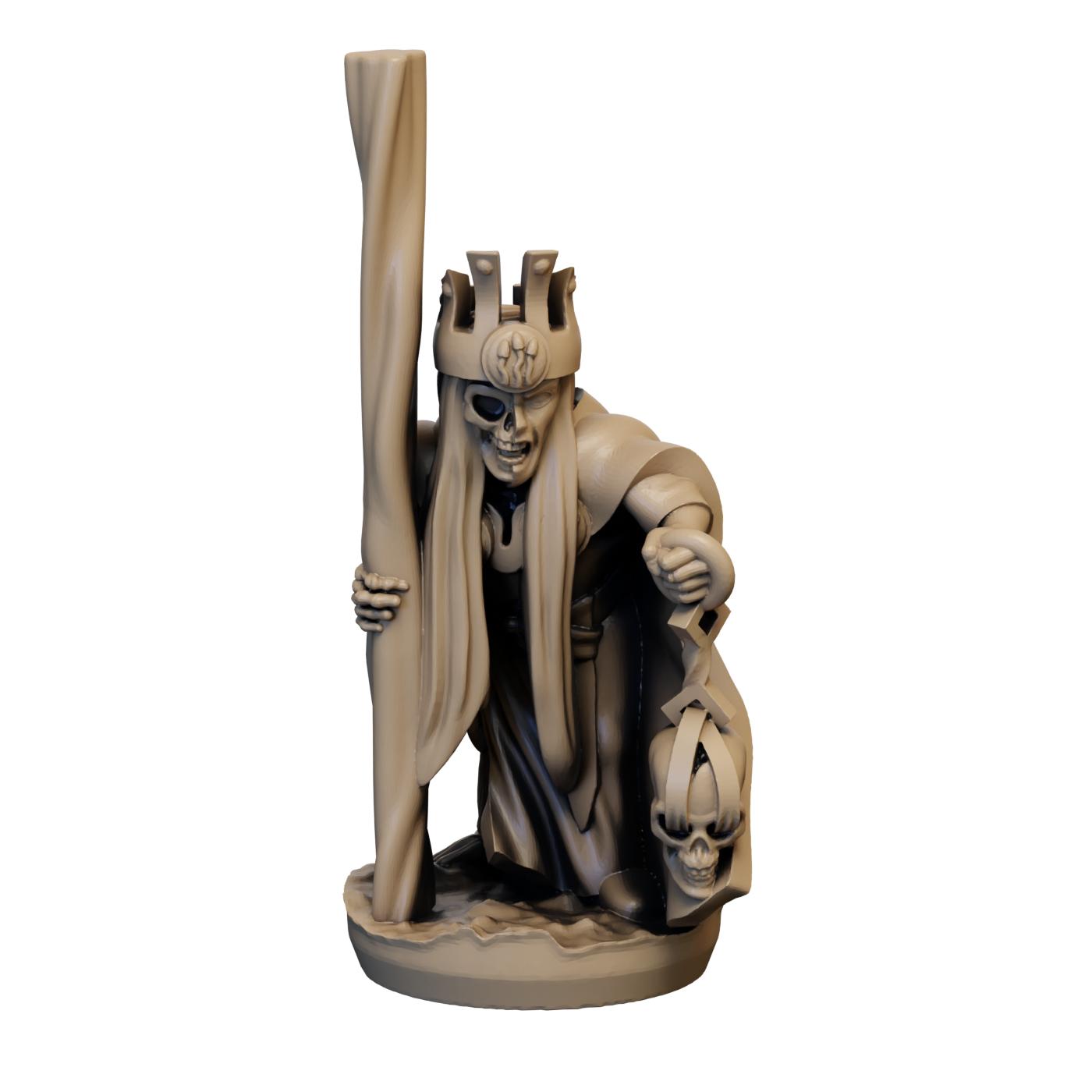
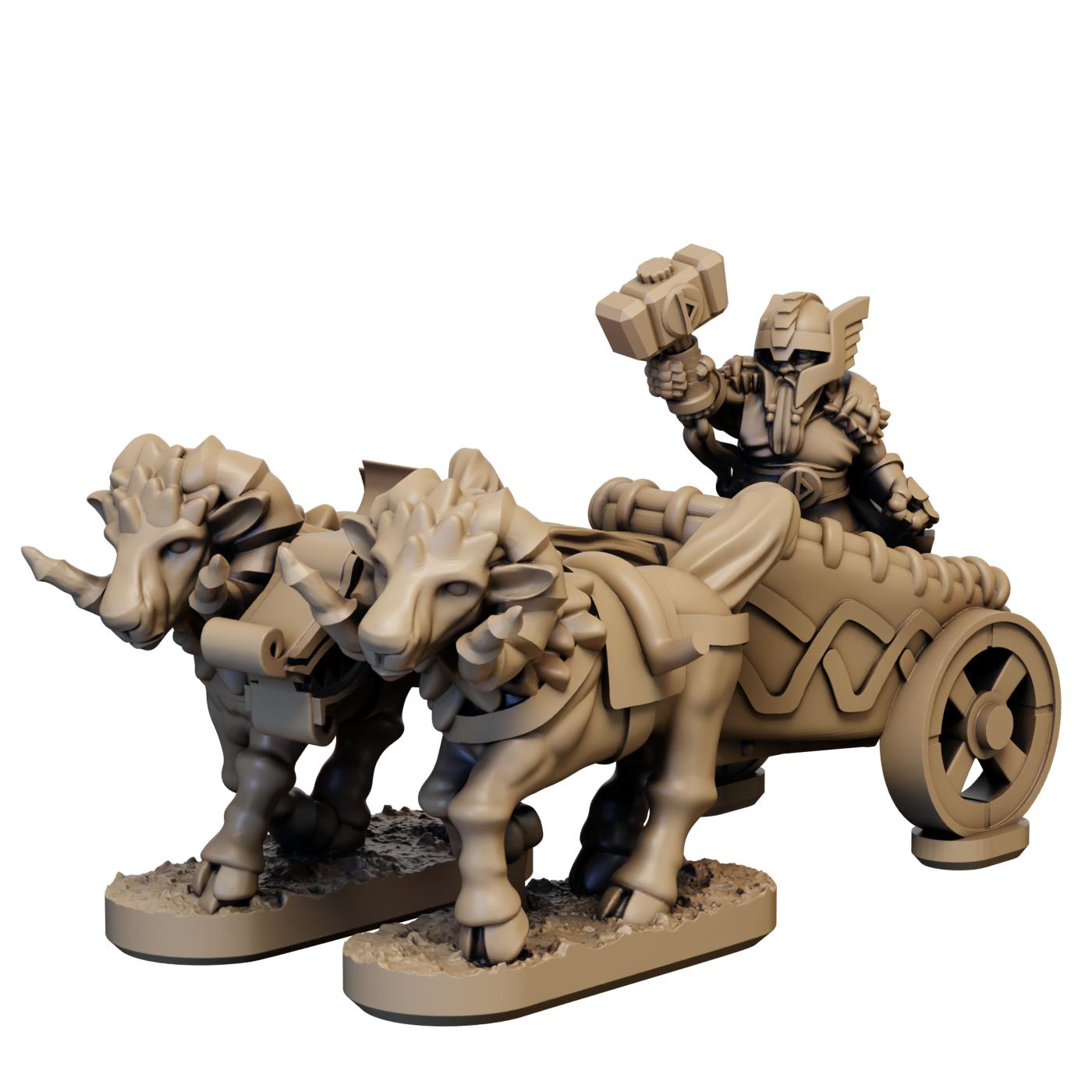
Thor, God of Thunder, strength and protection. Not the brightest of the gods, but certainly amongst the most popular. Thor has been depicted wielding the mighty hammer Mjölnir, riding in his chariot drawn by giant goats. Thor wears his belt of strength, and his iron gauntlets that allow him to catch Mjölnir.
Loki, the trickster god, if it goes wrong, its always, ALWAYS! because of Loki. Only a fool would ever trust this illusionist with anything. Loki's power with the arcane arts, tactical acumen and sideways thinking can sometimes masquerade as a force for good, but they are not!
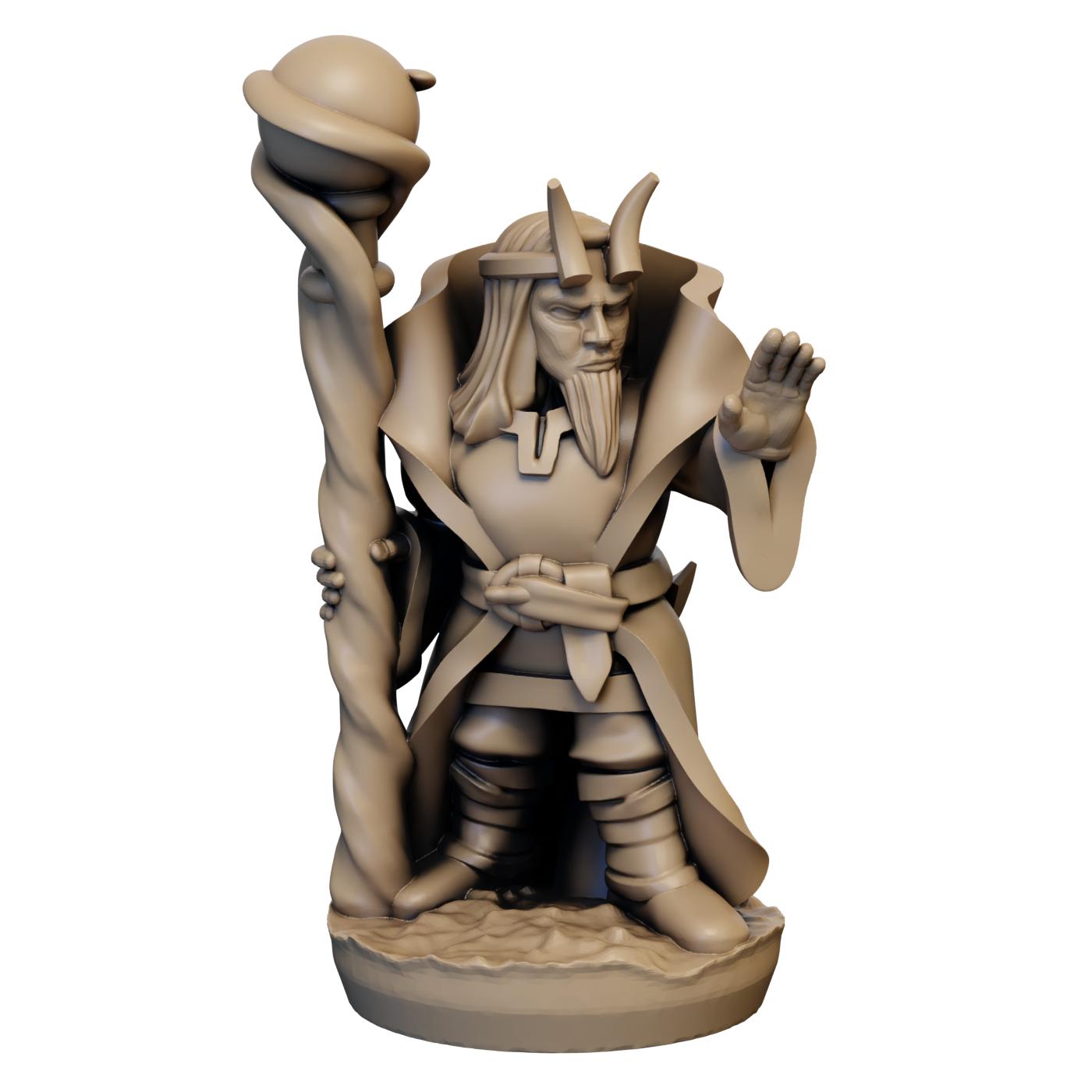
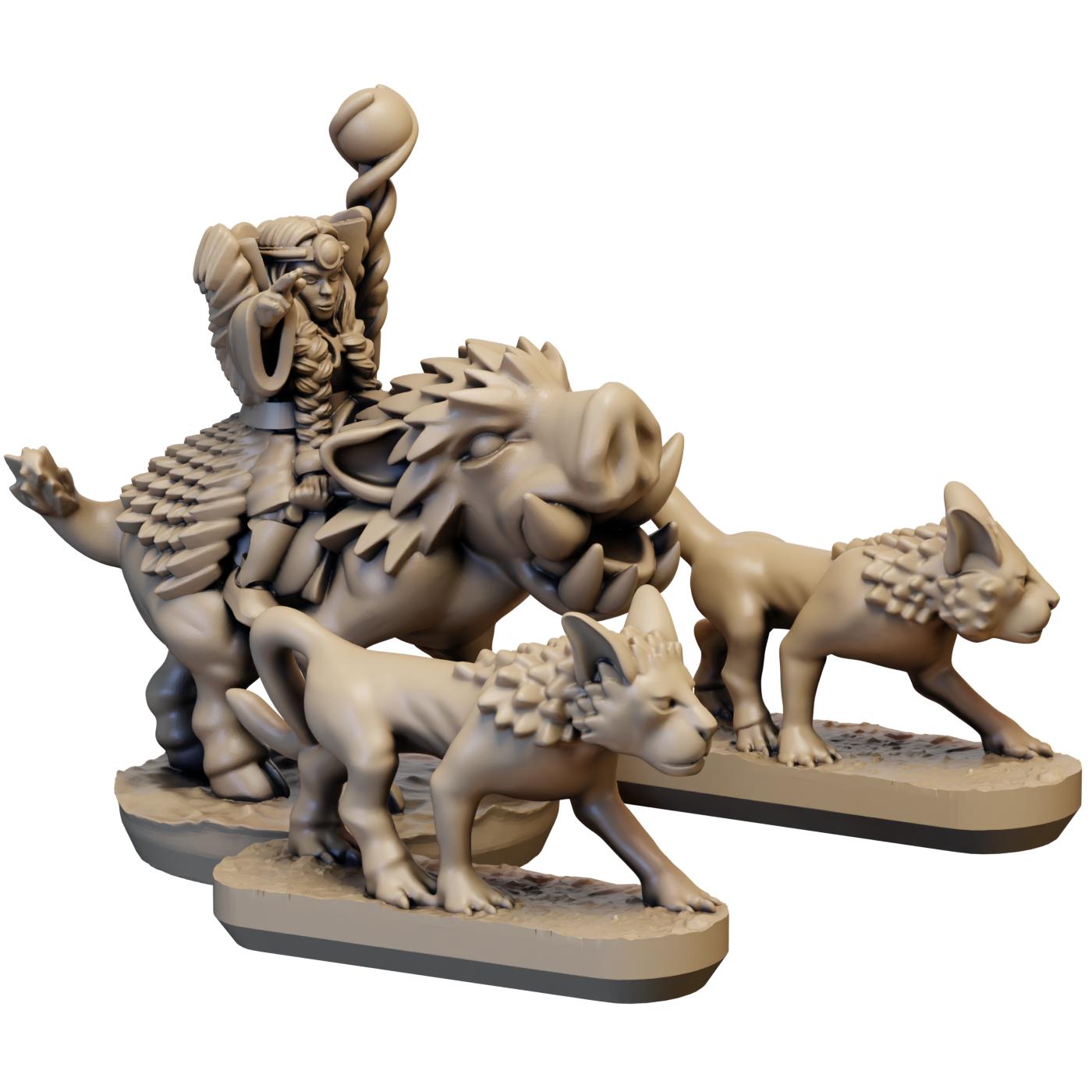
Freyja, the most powerful sorceress, goddess of Life, death, magic and fertility. Freyja is depicted here wearing her cloak of falcon feathers, riding on her war boar Hildisvin and flanked by her giant cats. In less martial times Freyja can be found riding a chariot pulled by these very cats.
Freyr, brother of Freyja, God of the world, with power over sun, rain, grain, wealth and fertility. If Thor is not the most popular of the gods, then perhaps Freyr is. Freyr is depicted on the back of his golden bristled war boar Gullinbursti and wielding an elf wrought sword, capable of fighting on its own.
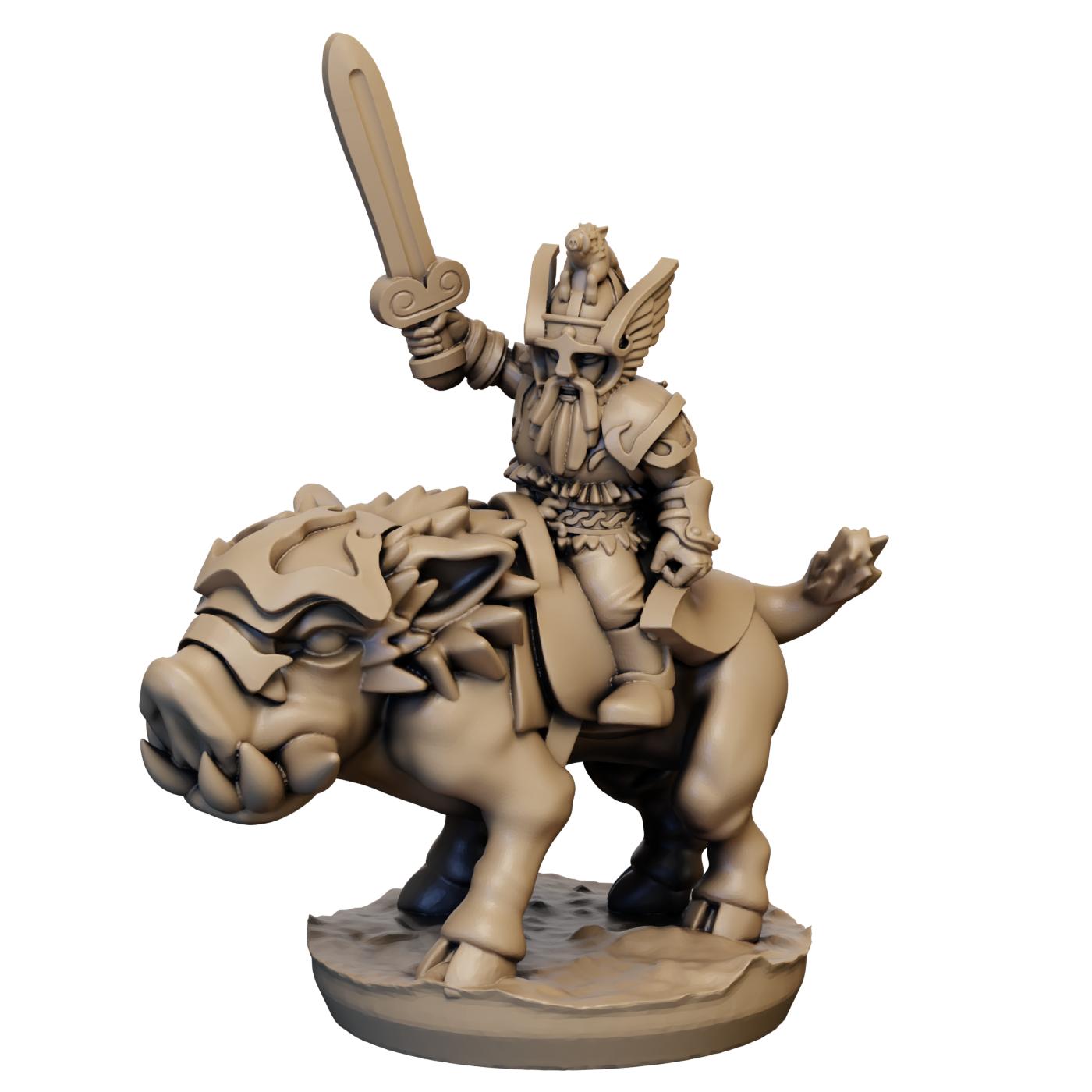
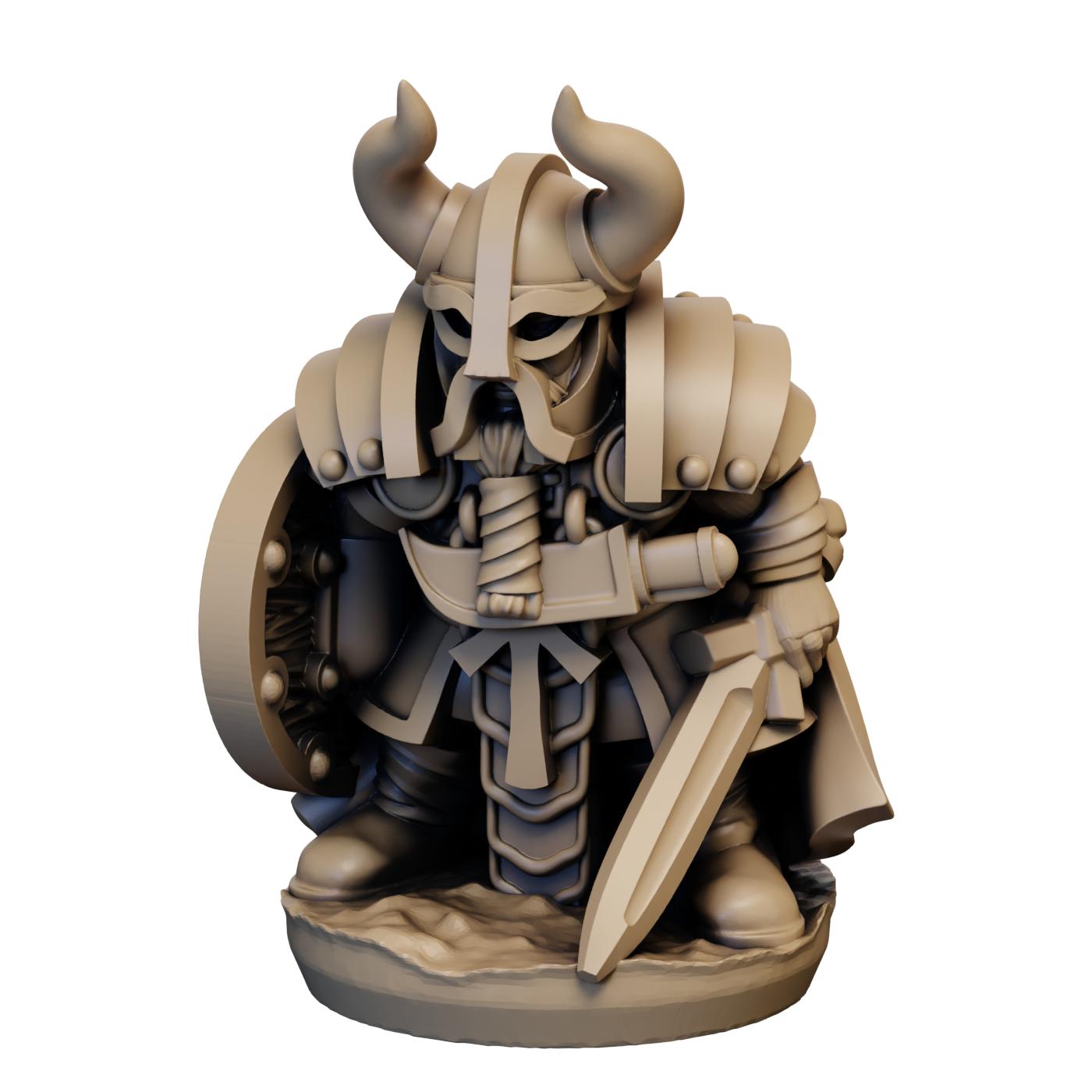
Tyr, a war god, is strong, powerful and just. But he is also the bravest of all the gods! He was the only god brave enough to agree to the terms of a bet that lead to the imprisoning of Fenrir, the fearsome wolf child of Loki. This bet required Tyr to place his right arm in the mouth of the wolf whilst he was tied up with a strong but weak looking tether. When Fenrir was unable to break free of the tether, Tyr lost his hand and Fenrir got a taste for God Flesh. Tyr is given command of a unit of Huscarls.
Heimdall, the watchman of the gods, with supreme eyesight and hearing, and no need for sleep, little occurs without the knowledge of Heimdall. Heimdall is given command of a unit of Huscarls.
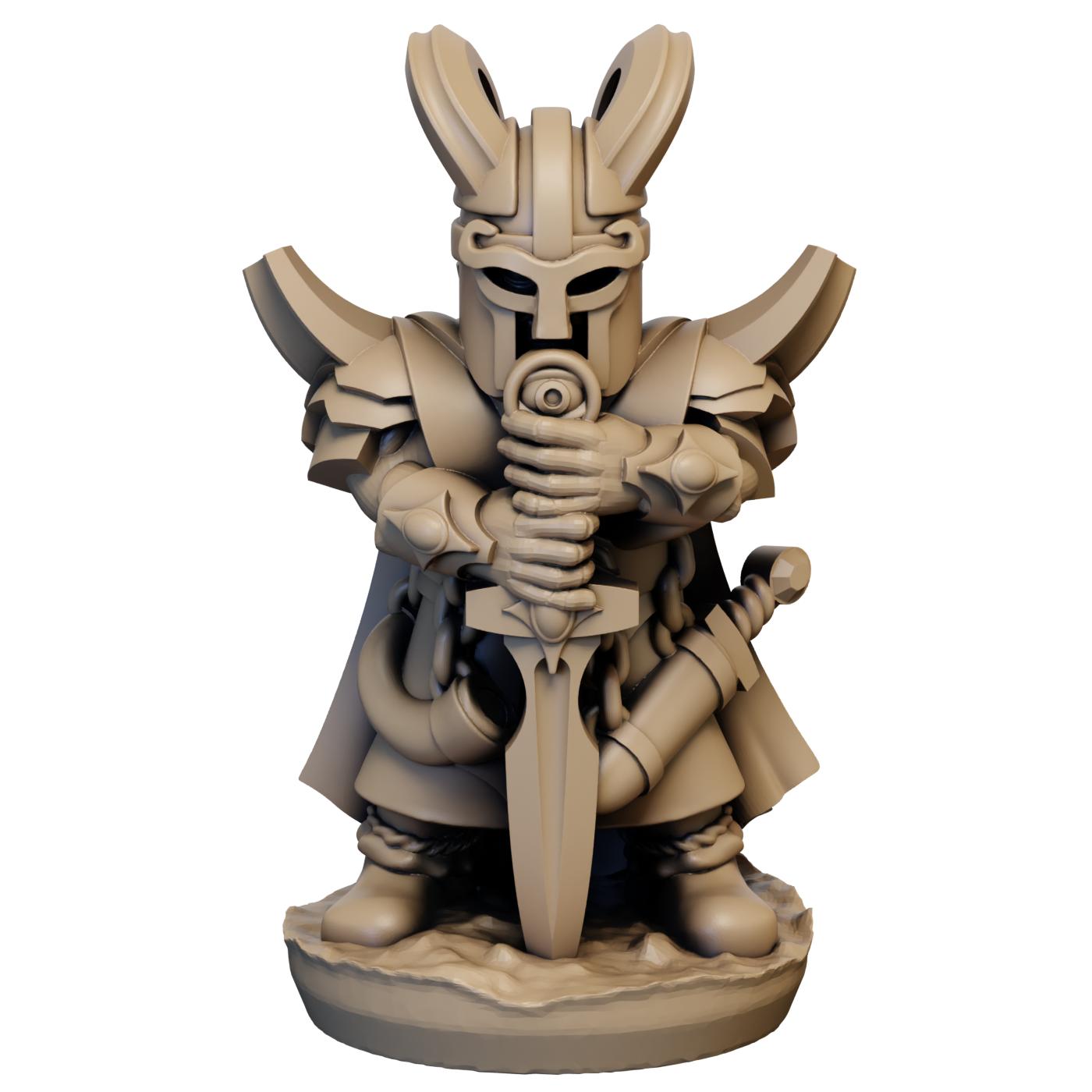
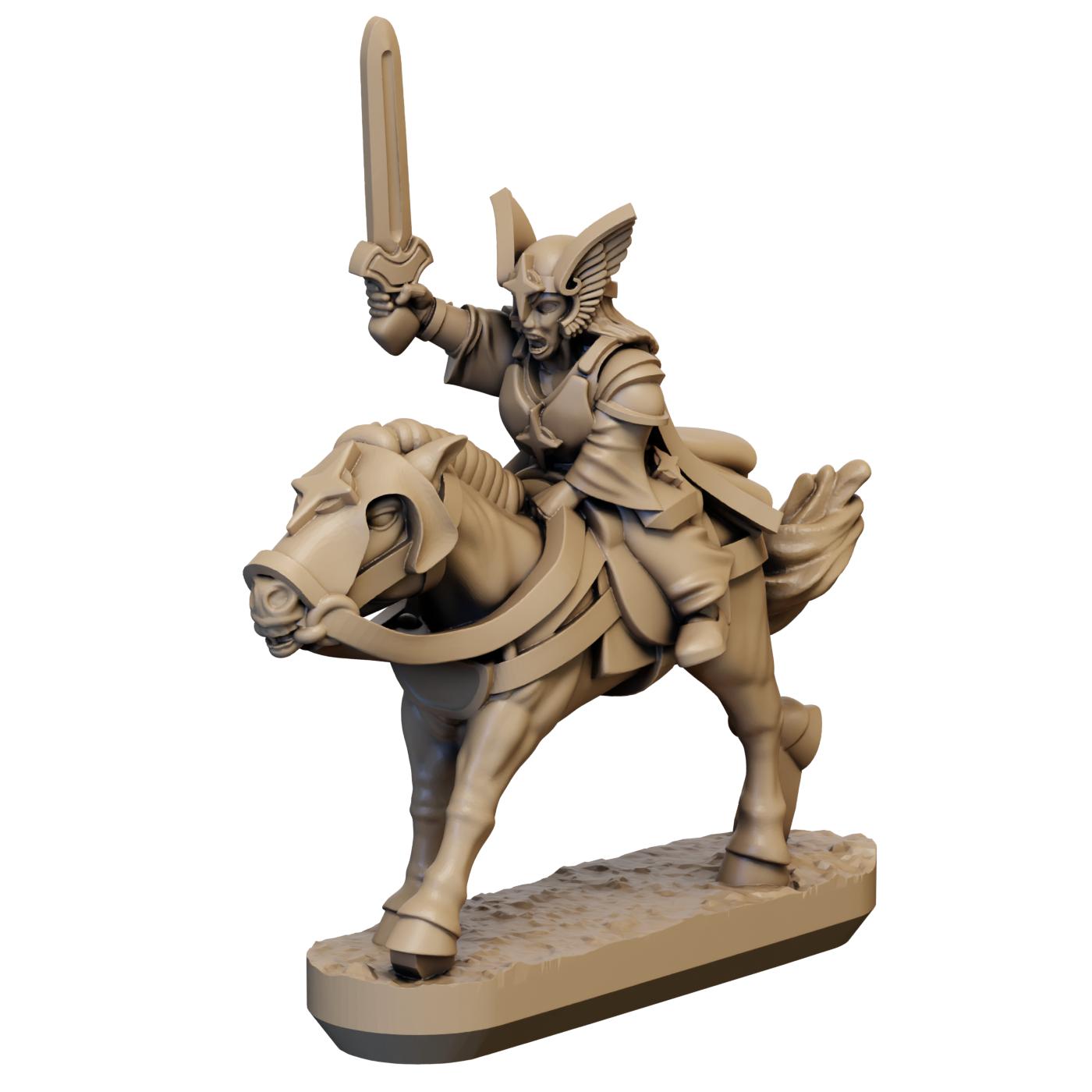
Gna, Messenger for Frigg, rides Hofvarpnir, a horse that can run on ground, sea or air. Gna is given command of a unit of Norse cavalry.
Balder, The purest of the gods, god of peace and nature. Balder is given command of a unit of Norse cavalry.
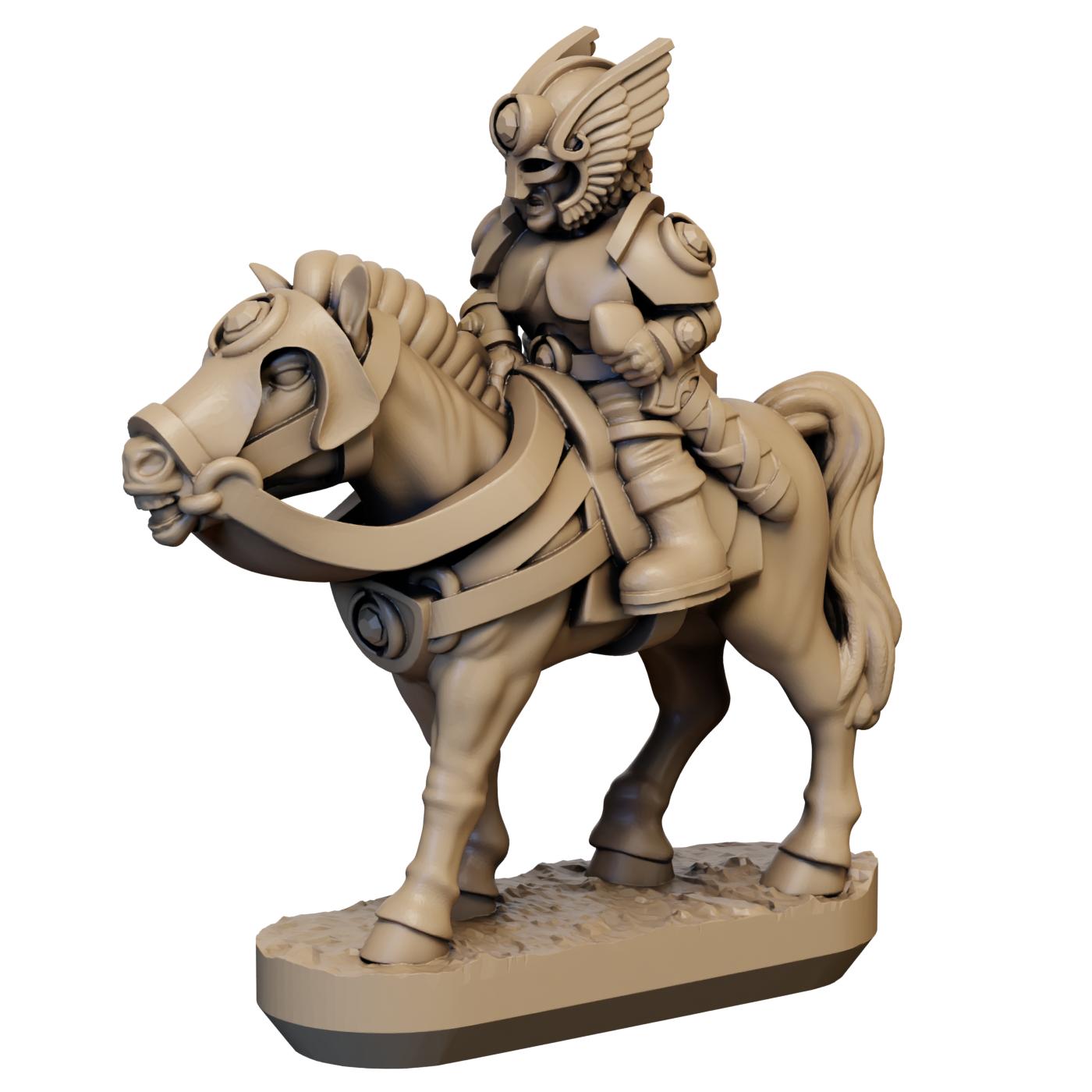
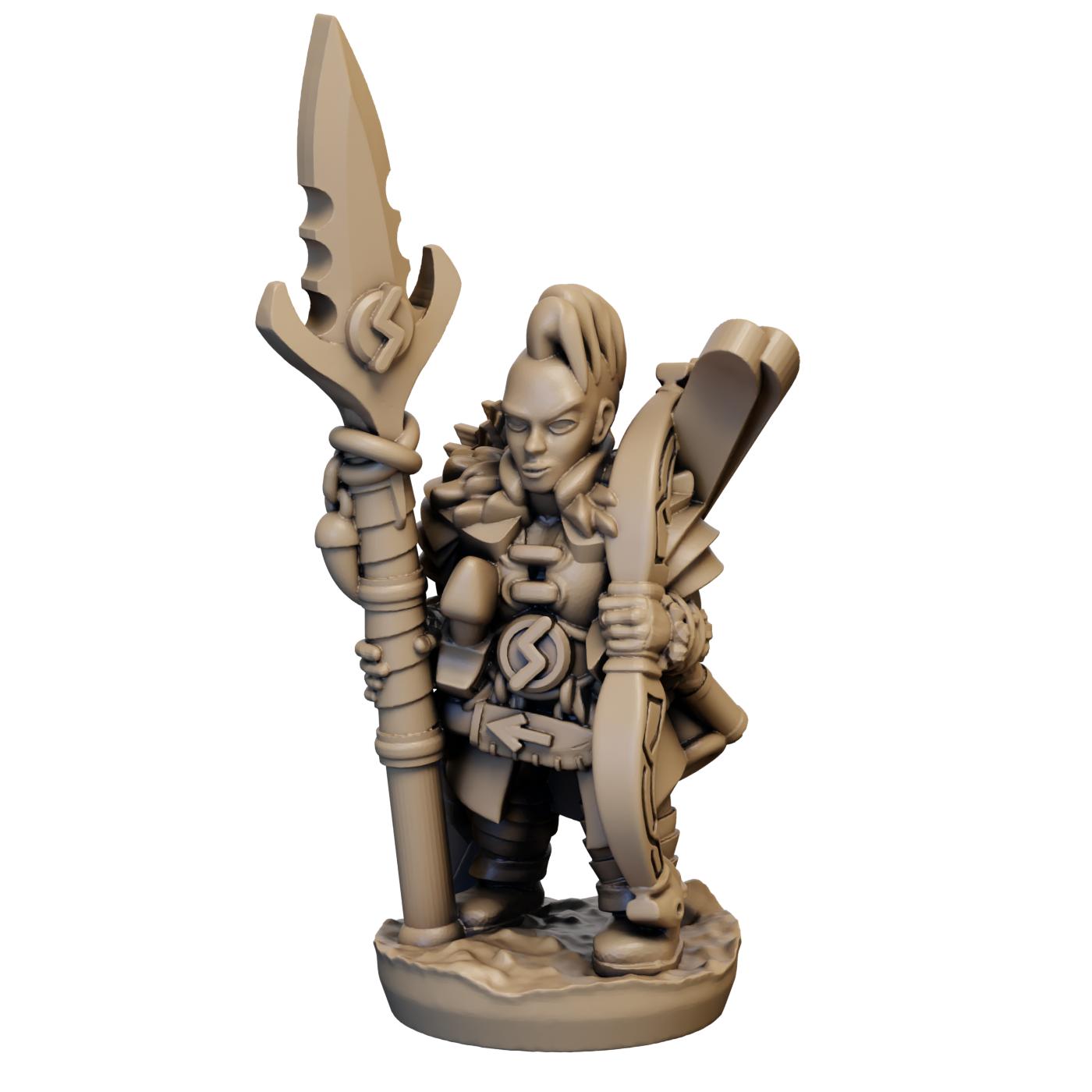
Skadi, the independent hunter, goddess of wilderness, winter and skiing. Skadi is given command of a unit of bondsmen.
Ullr, God of winter, duals, and the making of oaths. Uller is most often found hunting in the mountains. Ullr is given command of a unit of bondsmen.
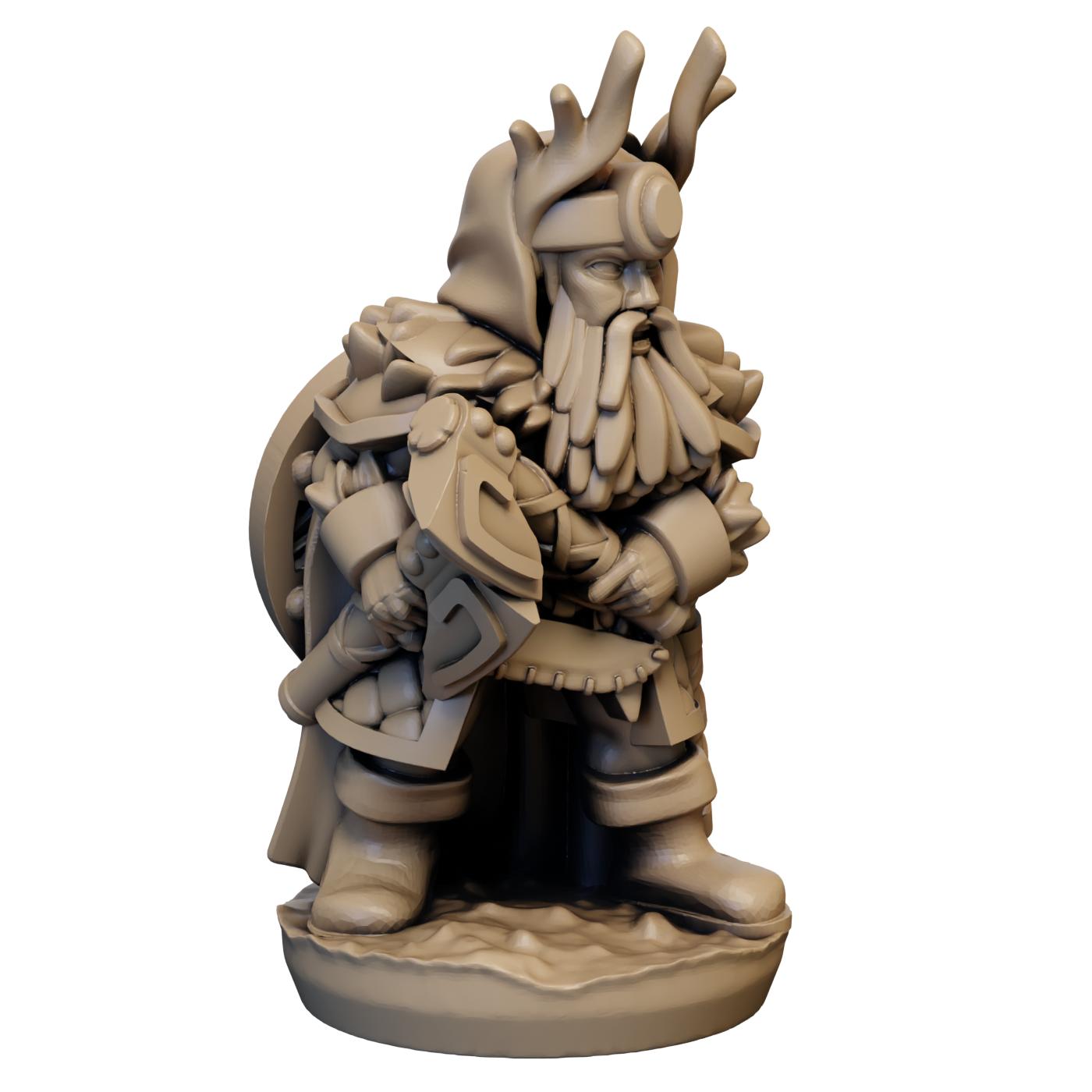
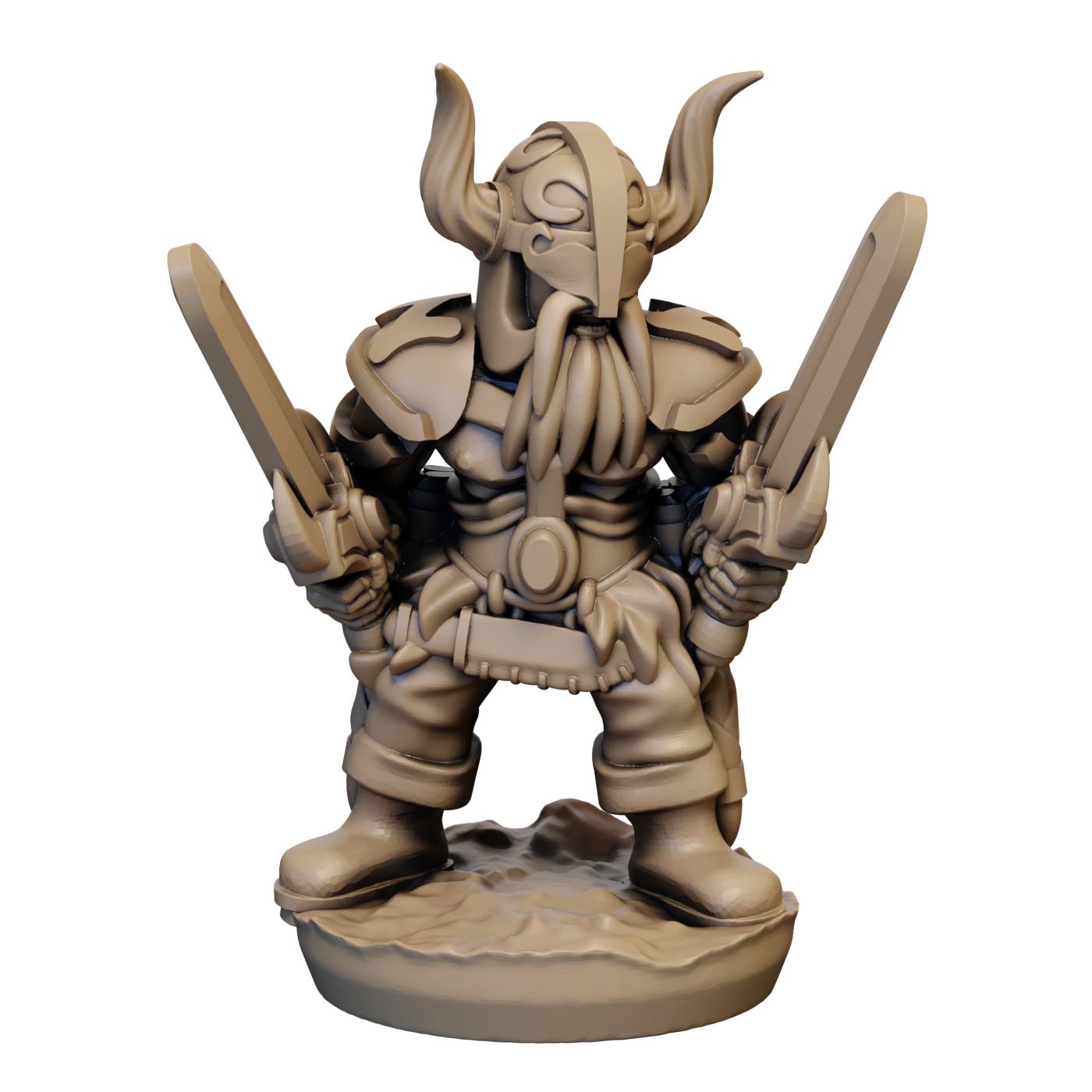
Hodr, Powerful and Blind god who was tricked by Loki into killing his brother Balder. Hodr is given command of a unit of bondsmen.
Odr, the god of divine madness is given charge of the bearskin wearing berserkers.
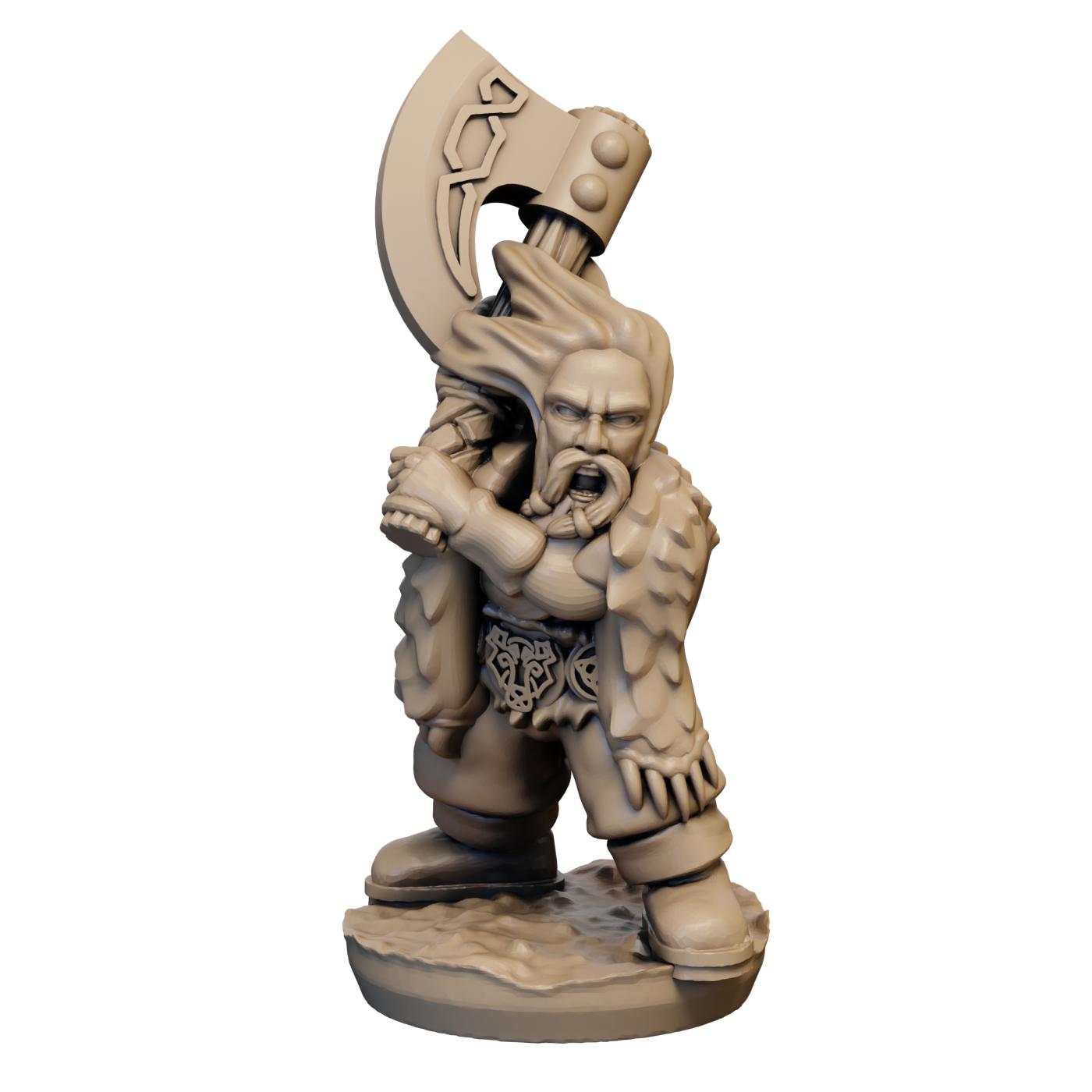
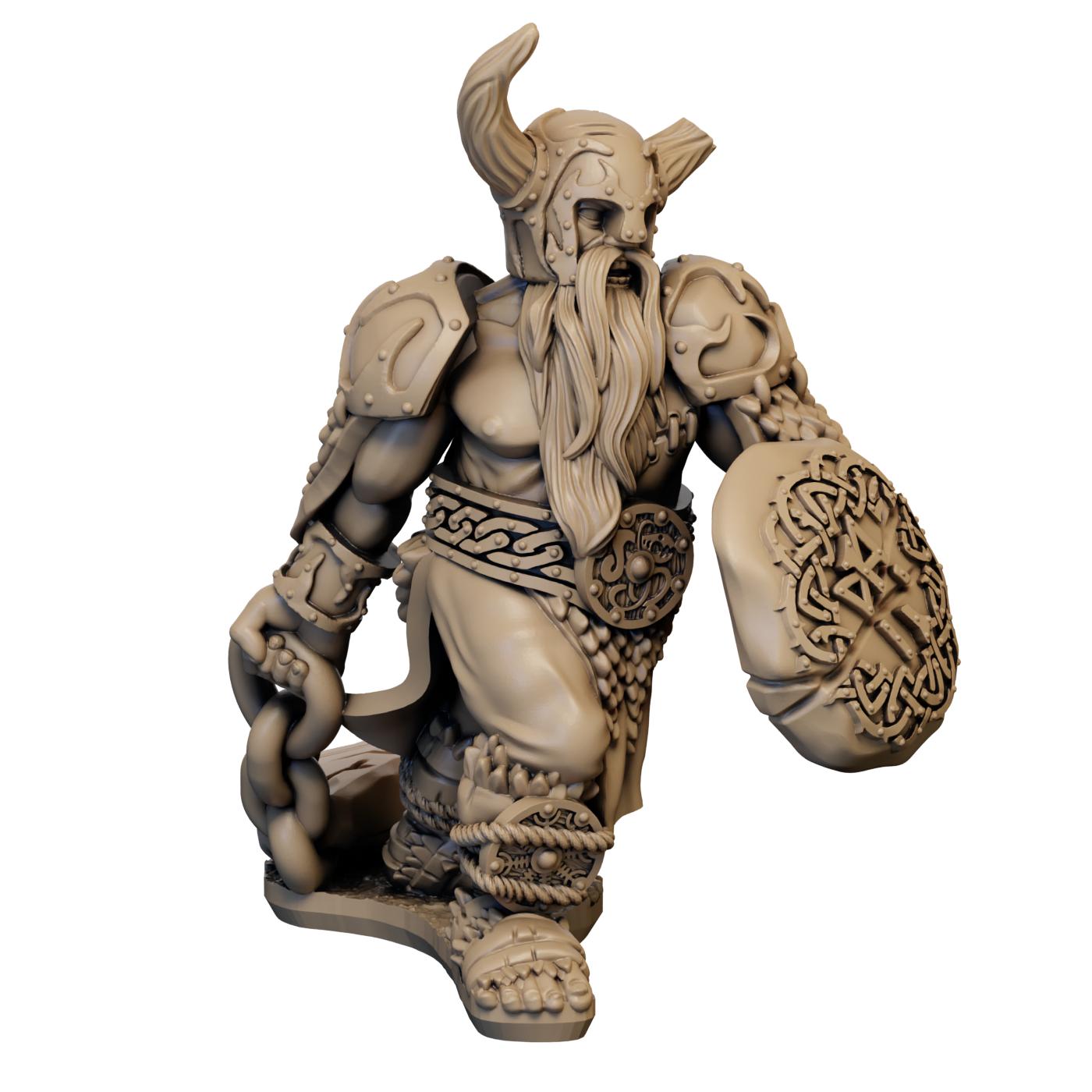
Hrungnir, was a giant who fought a duel with Thor armed with a huge whetstone and granite shield. Although Hrungnir lost the battle, Thor ended up with a sliver of whetstone lodged in his head.
Valkyries, These warrior women are responsible for taking the dead to Valhalla, where they take the form of beautiful hosts serving food and mead. On the battlefield their appearance is more terrifying, winged warriors riding mighty steads into the heart of the conflict, where death is most likely.
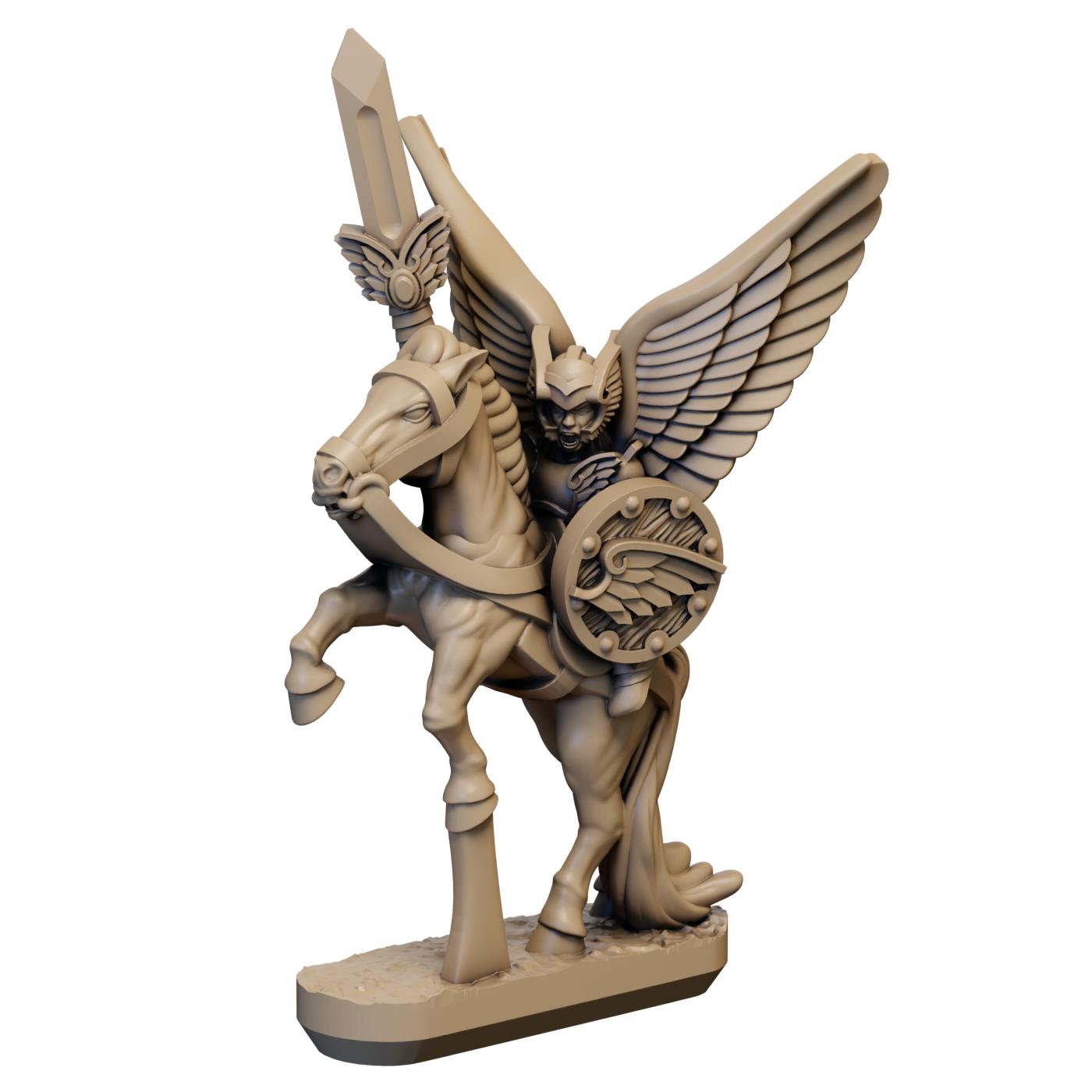
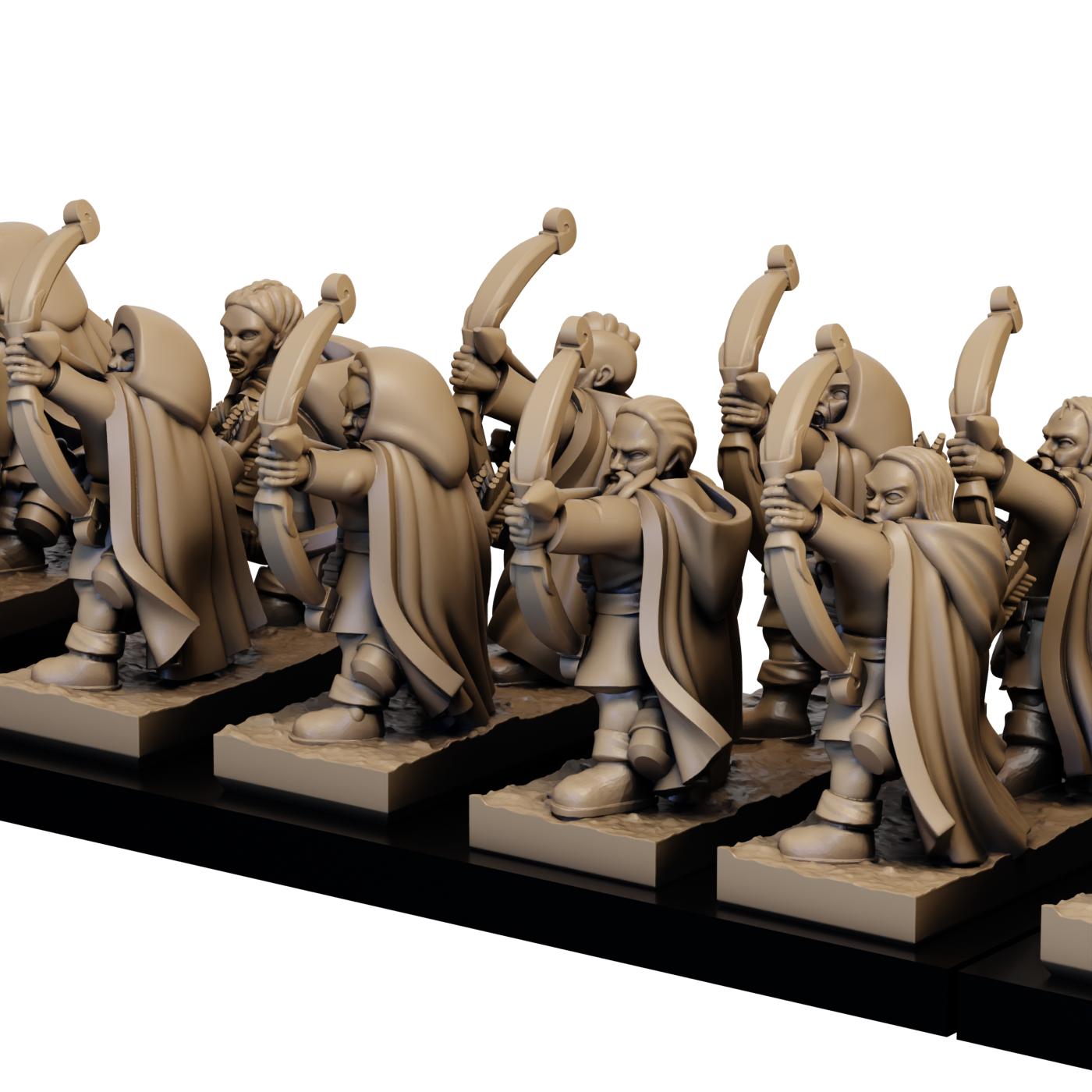
Hunters, Much of the Norse population are happier in the mountains and hills than in the Fjords and villages. These hunters bring their skill with bow and knife to the battlefield in times of war.
Berserkers, Clad in their skins, and fuelled by psychoactive mushroom brews, the berserkers bring the spirit of the bear onto the battlefield.
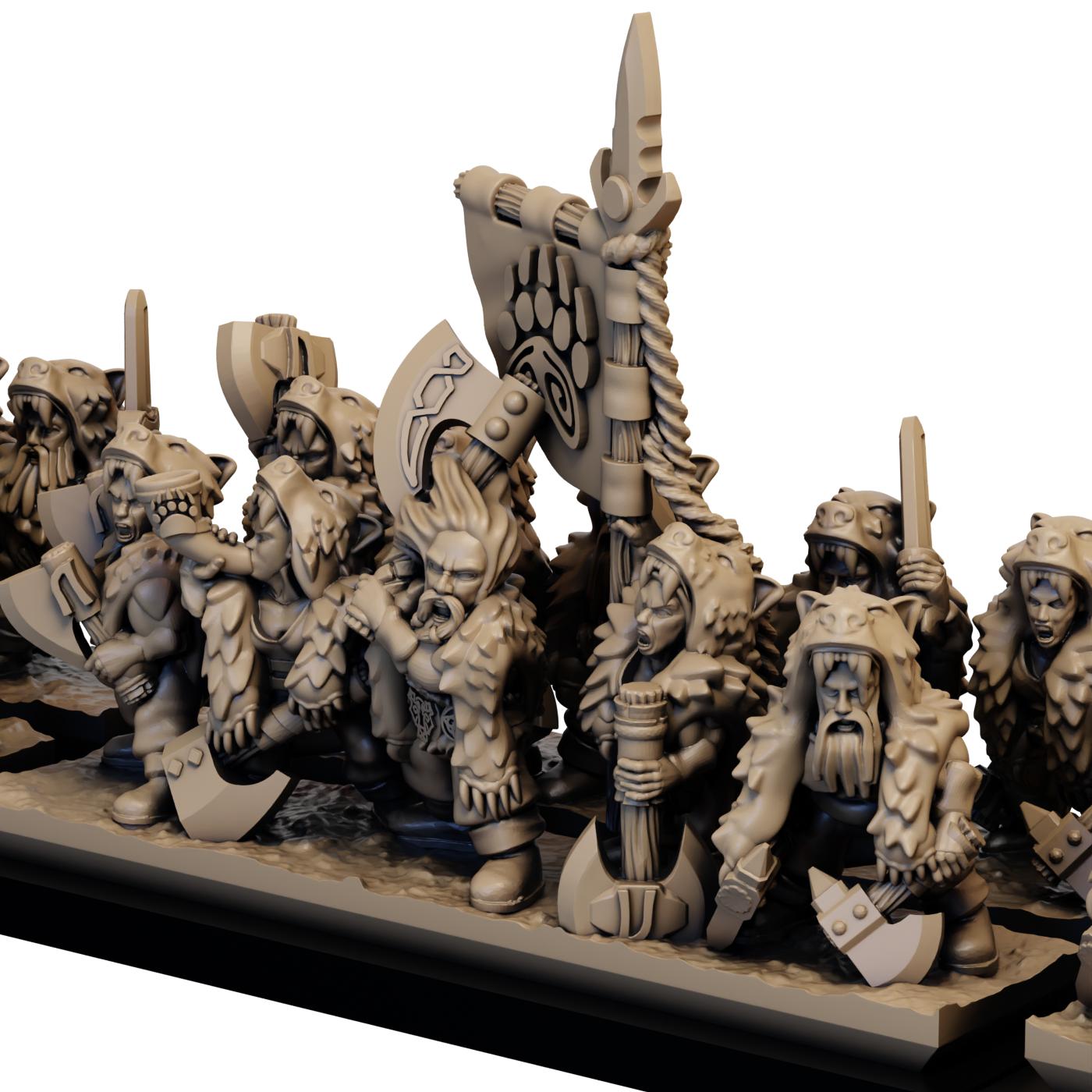
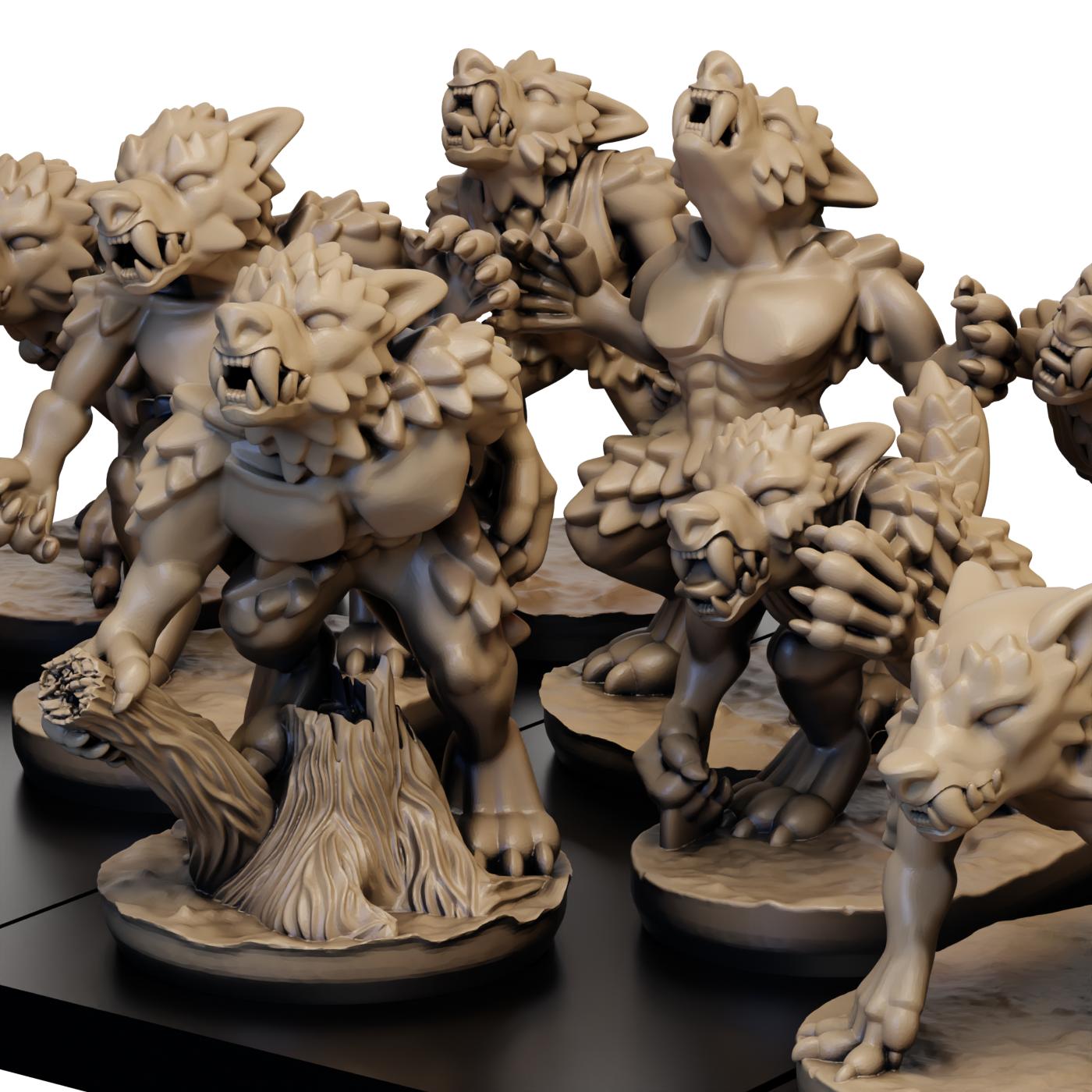
Werewolves, unlike the berserkers, who merely channel the ferocity of a bear on the battlefield, werewolves - though curse or magic, become at one with their animal spirit, transforming into giant half wolf creatures to facilitate bloody carnage.
Mammoths, At one time thought to be legend, then thought to be a creature of the past, the norse have brought the Mammoth to the battlefield. Whether they are trained before release, or merely saddled and pointed in the right direction, the charge of the mammoth will strike cold ice to the heart of the bravest warrior.
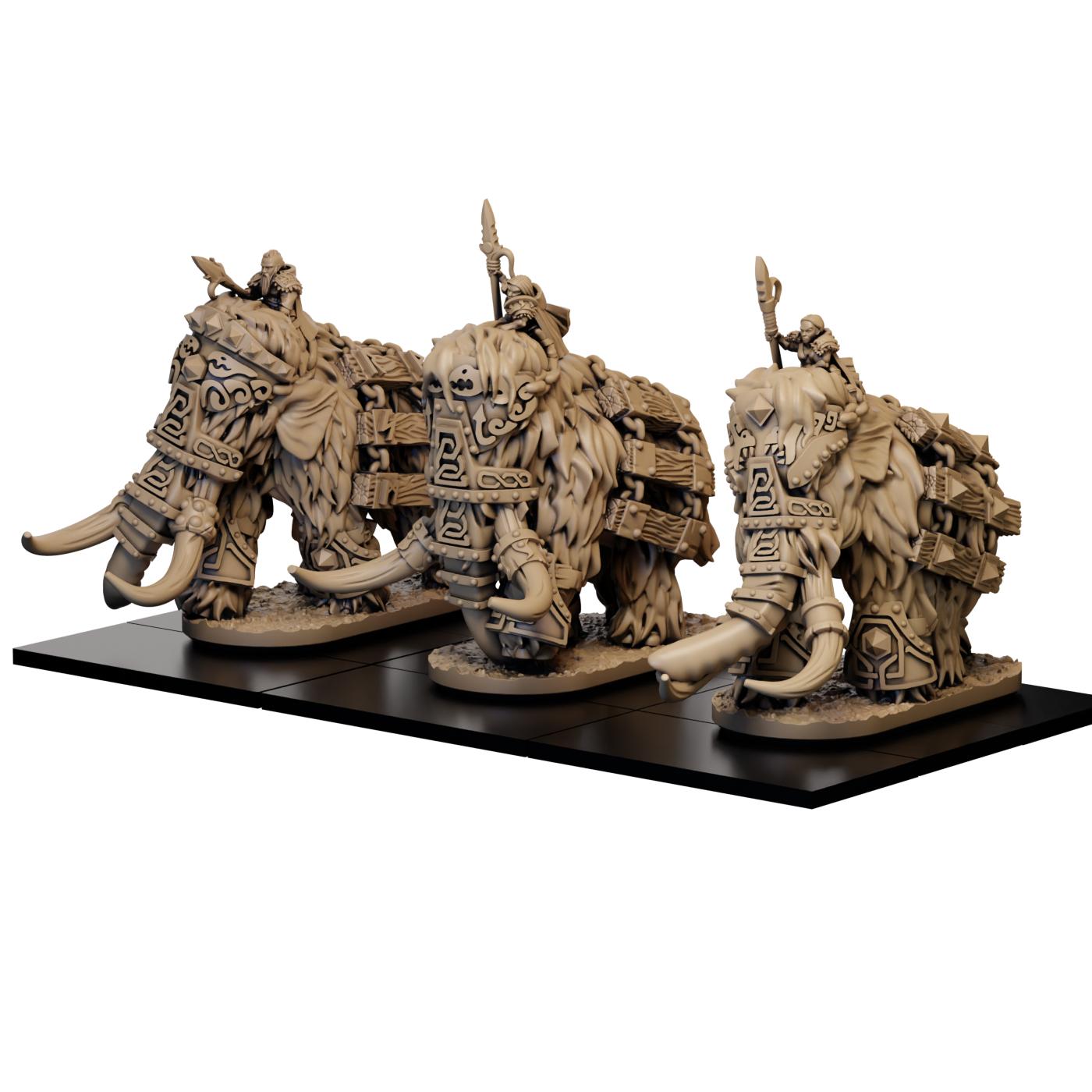
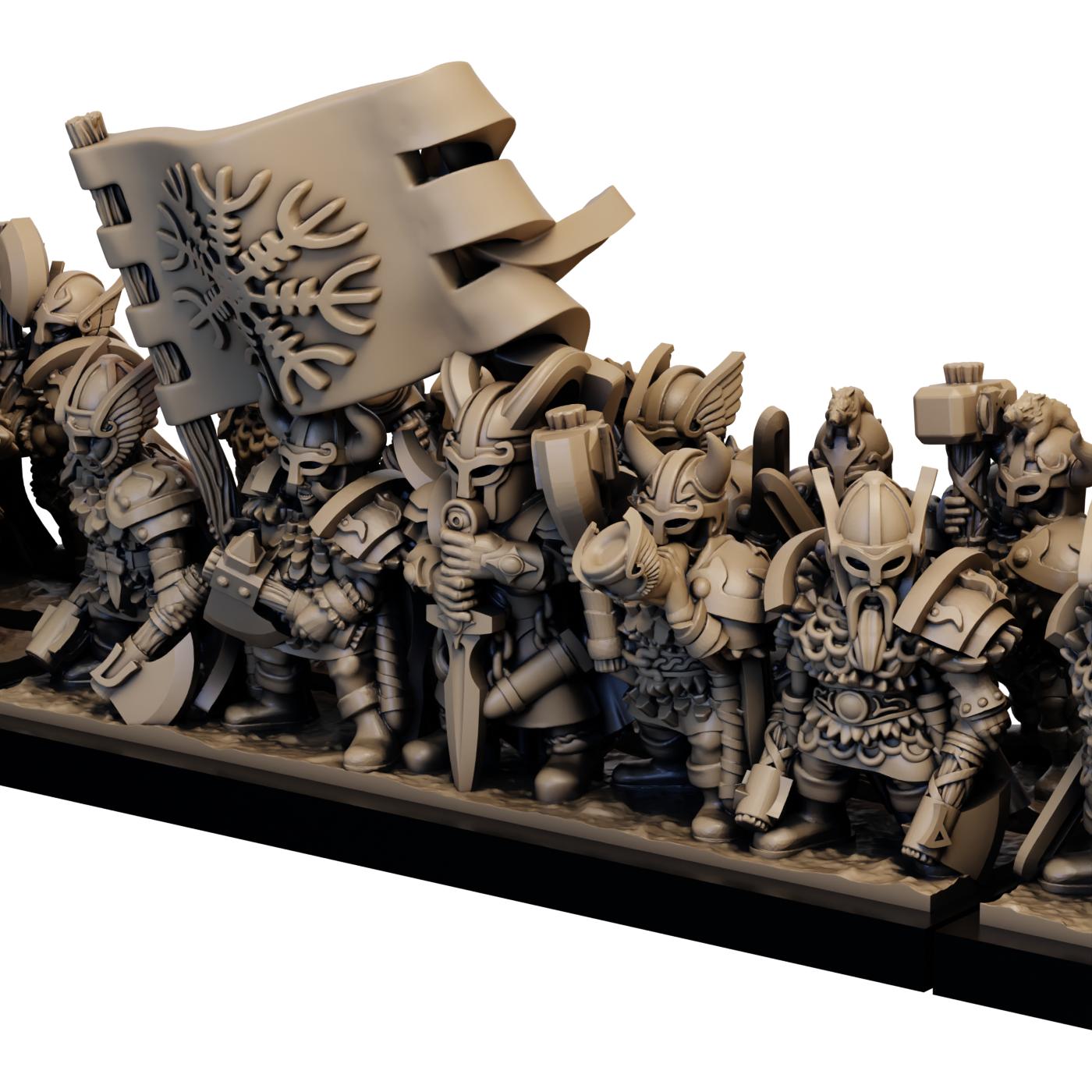
Huscarls, bodyguards and elite warriors, well trained, equipped and thirsting for carnage
Bondsmen, the shield wall, armed with sword and spear and ready to attack or hold the line.
